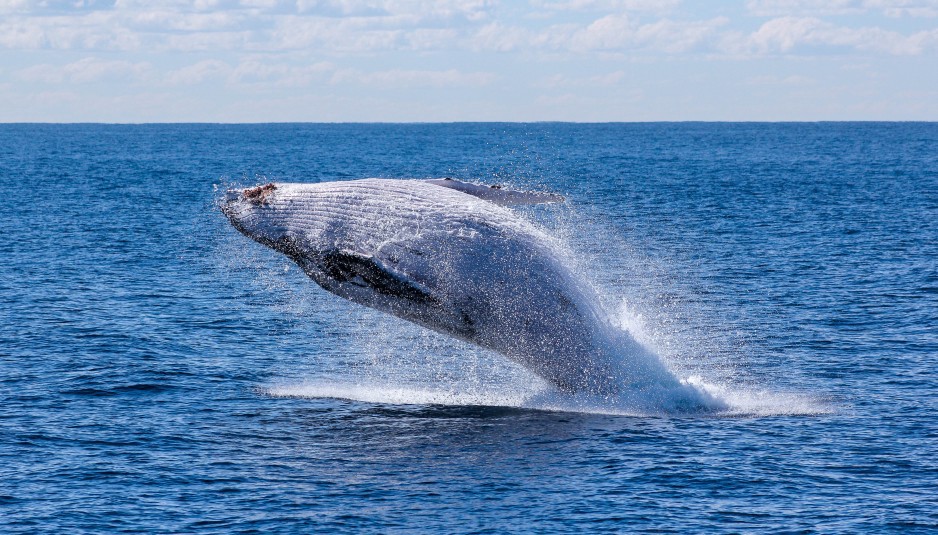Suddenly, oceans are everywhere.
The run-up to the big United Nations Ocean Conference in June began with last week’s preparatory conference and the first voluntary commitments to meeting Sustainable Development Goal №14: Conserve and sustainably use the oceans, seas and marine resources. The drumbeat continues this week with the World Ocean Summit in Bali, where investors are assessing the scale of the ocean opportunity.
Those investments are finally starting to roll. Venture capital for seafood startups and aquaculture technology reached $193 million in 2016, a 271 percent increase over 2015. The first close of Althelia Ecosphere’s $100 million Sustainable Ocean Fund is expected by mid-year. Pescador Holdings, a new vehicle launched by Encourage Capital, has made its first investment, in Chilean seafood producer Geomar. The third cycle of the Fish 2.0 business competition is underway, stocking the pipeline of seafood deals.
Any irrational exuberance, however, would be decidedly premature. If the ocean conservation movement follows the pattern of the fight against deforestation, it may take decades to reverse the degradation of the seas.
Deforestation hit the international community’s radar about 30 years ago. Global efforts to fight forest loss and degradation started rolling in the 1990s. Some dollars went to direct investments in preservation, some to market-based efforts like sustainable timber certification. Forest losses slowed, but by 2015, the world had still lost three percent of its forest lands and all of the biodiversity and carbon capture potential that forests support.
Unsustainable fishing and over-harvesting by sea-based industries are damaging the oceans’ ecosystems much the same way agriculture and unsustainable timber production have damaged the world’s forests. There is evidence that the oceans’ oxygen levels are falling as a result of climate change. That’s a life-threatening problem, and not just for the oceans’ wildlife and ecosystem balance. Much of the oxygen we breathe on land comes from the oceans.
- 90 percent of the world’s ocean fisheries are over- or fully exploited
- 35 percent of mangroves, 30 percent of sea grasses and 50 percent of coral reefs worldwide have been degraded or destroyed
- Fisheries mismanagement has cost the global economy $2.2 trillion in the last 30 years
To try to accelerate the recovery, the U.N. is moving to adopt a global Call to Action to support the implementation of SDG №14 at the Ocean Conference in June. The Economist is hosting the World Ocean Summit in Bali, Indonesia this week to galvanize more private capital for ocean conservation.
Fundraising for the $100 million Sustainable Ocean Fund by Althelia Ecosphere has moved more slowly than expected, but the fund should reach a first close in the first half of this year, thanks in part to a $50 million loan guarantee from USAID to help mitigate investors’ perceived risk of investing in a new sector of conservation finance. Althelia launched the fund last year in partnership with Conservation International and the Environmental Defense Fund to support sustainable fisheries worldwide.
Dutch fund Aqua-Spark one of the first dedicated sustainable aquaculture funds, raised $10 million from investors to seed and grow early-stage enterprises. It hopes to raise $400 million by 2025. Mike Velings, co-founder of Aqua-Spark, acknowledges that the sustainable aquaculture investing is still in very early stages. “We want to show that sustainable aquaculture can have the same returns as big industry or bad fishing,” he told ImpactAlpha,
Encourage Capital made its first sustainable seafood investment through Pescador Holdings, which was initially capitalized with $10 million from Zoma Capital, the family investment office of Ben and Lucy Ana Walton, part of the next generation of the billionaire Walton family. The investment, in Chilean seafood producer Geomar, is based on ocean investment “blueprints” Encourage developed in partnership with Rockefeller Foundation and Bloomberg Philanthropies to illuminate sustainable seafood investment opportunities.
Competitions like Fish 2.0, now in its third cycle are helping stock the pipeline with investable deals. Demonstrable investments structures, like NatureVest’s $80 million debt-for-nature swap to finance a marine reserve in the Seychelles, also point a way forward.
Credit Suisse recently made (paywall) a $15 million investment in the Sustainable Ocean Fund and will offer the investment to to clients as smaller “ocean conservation notes” (see ‘Nature Conservation Notes’ Bring Individual Investors into Climate Fund”). Credit Suisse is working with the fund’s partners to develop a “tool kit” of due diligence, financial and impact metrics and benchmarks to help new Blue Economy investors.
Such tool kits could help safeguard ocean investors and investments. The state of the oceans means we don’t have time, or money, to waste.











